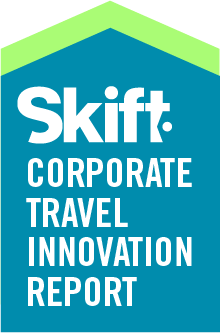Team Skift was out most of this week in Montreal participating in some bleisure activities — OK, mostly leisure — for the company's annual retreat. But that didn't keep news from breaking (frequently).
Monday brought a decision from the U.S. Supreme Court to hear arguments on the executive order by President Donald Trump banning travel from six Muslim-majority countries. The court will take up the issue in October, but in the meantime, part of the ban will go into effect. Travelers with "bona fide" connections to the U.S. — close family, business, or academic — should not be blocked from getting visas under the current decision.
So what does that mean for business travel? We expect less chaos at the airports, but confusion remains.
Greeley Koch, executive director of the Association of Corporate Travel Executives, offered this reaction in a statement: "There are reasons to be heartened by the Supreme Court’s decision [Monday], in particular the provision that would allow travelers with legitimate ties to the U.S. to continue to enter the country. But the key to successful implementation—and to minimize the impact to businesses—is clearly defining the 'significant business or professional obligations' that will allow travelers with proper documentation to enter the U.S. and keep the economic engine running. We will be eagerly awaiting clarity until this issue can be definitively resolved."
On that other ban front, the threat of an in-cabin "laptop ban" appears to be giving way to a policy of increased security around the world for all U.S.-bound flights. Again, specifics are scarce. In another statement, Koch called the new procedures "far preferable to an outright electronic device ban" for business travelers, but cautioned that the details are important.
"How onerous will these new protocols be for travelers and airlines?" he asked. "What if an airport or airline has difficulty complying—does that lead to a ban on electronics in the cabin? Until we have the details, this policy has the potential to become a de facto device ban."
Uncertainty around security restrictions can affect traveler satisfaction, as can a multitude of other factors. It seems like a given that travel managers should know how satisfied (or not) road warriors are. A new study, however, shows that 31 percent of North American travel managers who responded to a survey never measure traveler satisfaction.
Given the state of the world and the rapidly evolving forces that impact corporate travel, we think that's a conversation worth having. — Hannah Sampson, News Editor |
